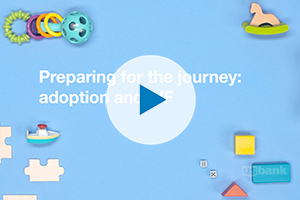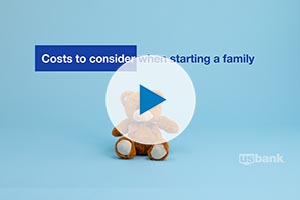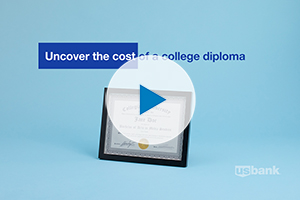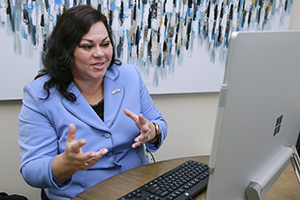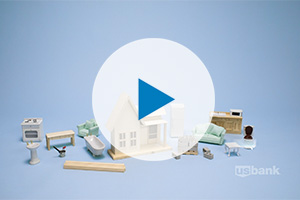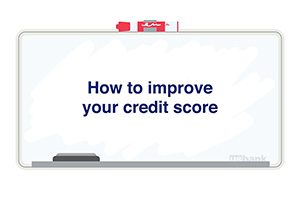Today, many people have multiple debts that can become difficult to manage. In addition, consumers may be faced with high interest rates that add to their overall debt total, which could mean paying much more than their actual loan amount.
After years of making payments to lenders, many decide to consolidate their debt into one loan versus keeping up with payments on several loans or credit cards. Being debt free may also be a goal but getting there starts with a plan that’s suited for your debt situation. When deciding on a plan, consider these pros and cons to help determine your options.
But first, let’s review what consolidating debt looks like.
Start by getting a basic understanding of what debt consolidation means and whether it can help you. When coming up with a plan, it can be hard to figure out where to start. However, if you lay out all your debts, payments and interest on current cards and loans, and you notice some of the following rings true, that’s the first big first step toward understanding whether debt consolidation is right for you.
Consider debt consolidation if:
- You have multiple high interest rate loans (including credit cards, personal loans, school loans, etc.)
- Your credit score has improved since applying for your original loans.
- Your debt is 40% less than your gross income.
- You want to make just one monthly payment toward your debt.
Debt consolidation can be a good idea for borrowers who fall within these categories. But it’s also important to note that moving forward with consolidating only helps if you take steps to avoid adding too much new debt, and it’s always important to avoid taking on more debt than you can afford to repay. If habits like overspending pile up, it’s time to move forward with a plan to address those habits before jumping into consolidating debts.
Let’s take a look at some pros and cons of debt consolidation.
The pros
Consolidating debts can have its benefits. Here are a few advantages to help you plan.
- Keep organized: Tidying up your finances by combining outstanding debts into a few payments (or even one payment) can help you stay organized. Keeping debts organized may also help you stay on track with your monthly payments and any interest hikes that could hit your loans that you may not notice if you’re keeping track of too many accounts. If your goal is to become debt free, keeping fewer accounts organized can help you more easily see when your debt will be paid off.
- Track fewer interest rates or lower rates: By combining debt of each loan that carries its own interest rate, it could be easier to have just one or very few interest rates to keep track of. Start by understanding your credit score and its health before looking for a loan or credit card with less interest. It’s also a good idea to talk with your banker or financial advisor for guidance before jumping into a situation that could provide a lower interest rate.
- Help improve your credit score: Though applying for a new loan or credit card could temporarily impact your credit score, the longer-term benefits of having more manageable debt payments can lead to an improved score over time. It’s important to look at reducing your credit utilization (the percentage of your total available credit that you’re using). For instance, if you have a credit limit of $10,000 on a card and your balance is at $5,000, your credit utilization ratio is 50%. Some experts recommend keeping your credit utilization under 30%. By consolidating this type of debt into a lower interest rate loan or paying down your balance to hit that 30% mark, this can potentially help boost your credit score.
The cons
A debt consolidation loan or credit card balance transfer may be a good way to organize debt payoff, but there are some disadvantages to keep in mind.
- Nothing is guaranteed: Consolidating debts does not guarantee you’ll get out of debt. Before consolidating debts, make sure your spending habits are in check, you’re on top of monthly payments and your credit score is in good shape. If your credit score could use a little work, learn about some ways to build and maintain your credit score.
- Interest rates are higher: Though debt consolidating could lower your interest rate depending on your situation and credit health, it could also raise the interest rate. If your credit score isn’t high enough to access competitive rates, you may be stuck with a rate that’s higher than your current debts. That’s why it’s best to consult with your banker or financial advisor about an approach for your situation.
- May encourage overspending: Consolidating debts can organize and streamline your payments, but it doesn’t address the habits that might’ve led you to accumulate debt. And sometimes seeing available credit on a credit card may give the illusion that you have money to spend. Those tempting purchases may look more enticing if you clearly see you have available credit, but remember to be mindful about each purchase and be careful not to spend more than what you can afford to repay.
Consolidating debts: A few ways to do it
If you need a larger amount to help pay down debt, and if you’ve determined that debt consolidation is right for you, these options may help in your situation.
Consider a personal loan
Personal loans often have lower interest rates if you have good credit. If you choose this plan it will require you to take out one big personal loan to pay off all your separate loans, ultimately combining all your debt into one with one lender with one interest rate. That means when you receive your personal loan you are responsible for making sure you pay off all your multiple loans to begin your debt consolidation.
There are lenders that offer special debt consolidation loans, however those type of loans often have much higher interest rates and if you have good credit, you could be better off with taking a personal loan to consolidate versus a special debt consolidation loan. This may also be a good option if you have your spending under control and are 100% sure that you will not use the personal loan for anything other than paying off your debt for consolidation.
Refinance to pay off debt
Another option in consolidating debts can be refinancing a car loan or a mortgage. Although these are more than likely to be bigger loans, it can help lower your monthly payments and may also offer a lower interest rate for the new terms of the loan. Minimizing and lowering debt by refinancing bigger loans such as a car or mortgage can help you reallocate more of your income to tackle any higher interest rate loans you may have first versus your lower interest rate loans. Properly prioritizing the higher interest rate loans and paying them off first will help get rid of the higher payments sooner than later. This may be a good approach to eliminating and consolidating your debt.
Continue reading for more ways to manage your debt.



















